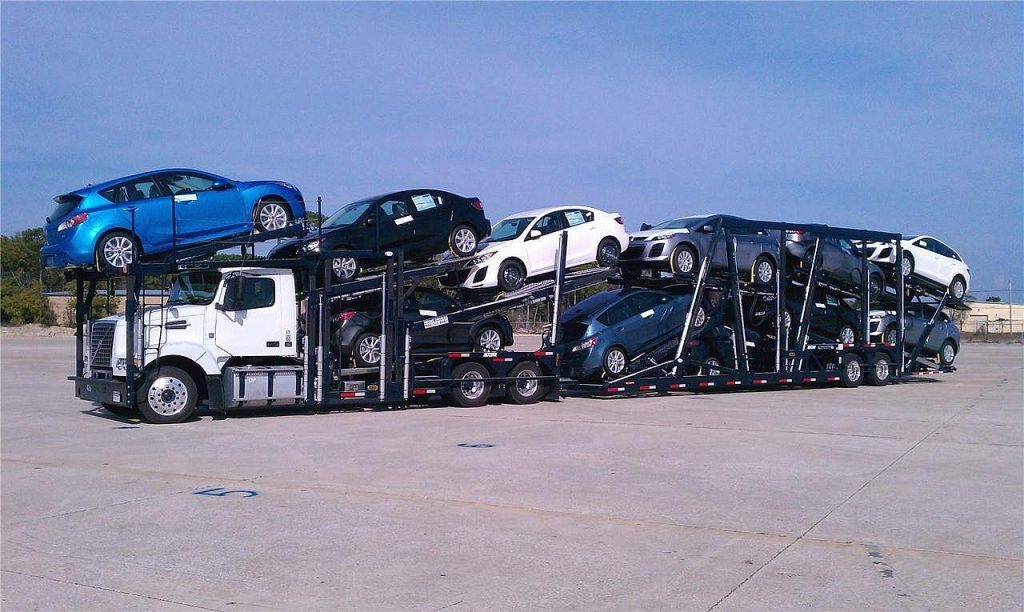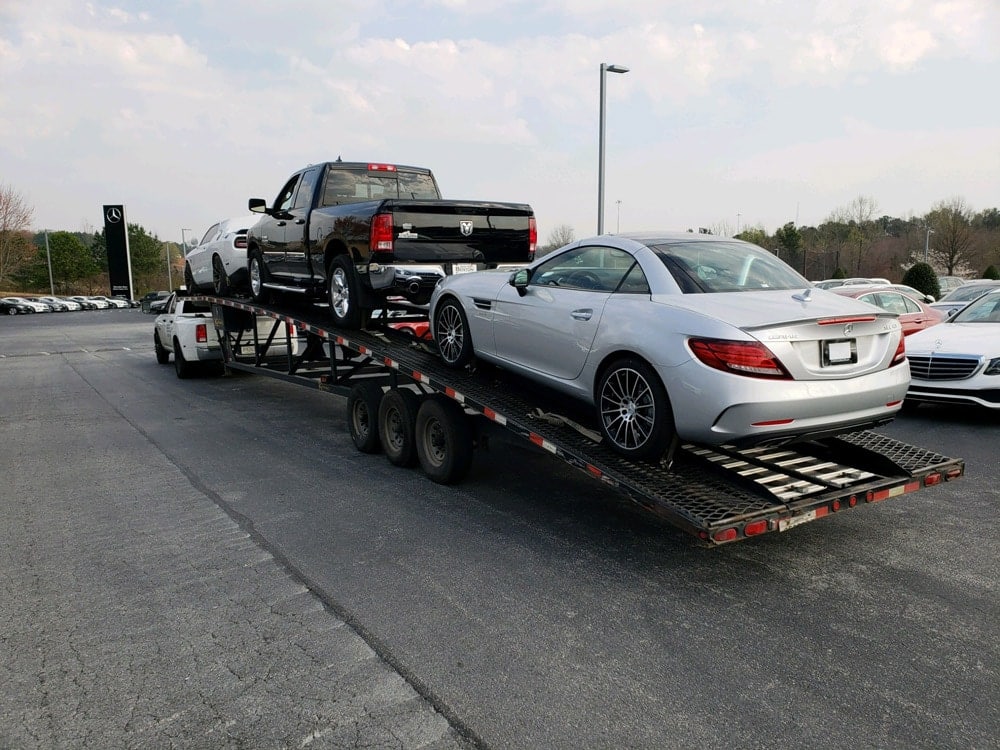Auto Hauler Insurance Requirements: Essential Coverage Guide
Commercial insurance for auto haulers is a crucial aspect for owner-operators and businesses involved in the transportation of vehicles. Whether a small or large hauler, having the appropriate coverage ensures protection from potential risks and liabilities while operating in this industry.

It is essential to understand the different types of insurance requirements and the factors that impact the insurance rates to ensure comprehensive protection.
There are three main types of auto transport insurance that carriers need to be aware of: customer insurance, carrier insurance, and broker insurance. Carrier insurance is crucial as it covers any damages to the vehicles being transported, while customer insurance pertains to personal insurance that may not be required during shipping. Broker insurance covers the role of the intermediary, which can play a lead role in the shipping process. Different factors, like the size and scale of the hauling business, the value of vehicles being transported, and contractual terms, can influence the coverage requirements and amounts.
To meet legal obligations, carriers must adhere to federal and state regulations regarding insurance filing requirements. The Federal Motor Carrier Safety Administration (FMCSA) mandates specific insurance and legal process agent documents to be filed by motor carriers, forwarders, and brokers before obtaining their operating authority.
Understanding these requirements is essential to ensure the smooth functioning of any auto hauling business and to avoid unnecessary legal complications.
3 Key Types of Car Hauler Insurance Coverage

Car hauler insurance is crucial for businesses involved in transporting vehicles. There are various coverages available, each designed to protect different aspects of the business. This section discusses three essential types of auto hauler insurance coverage: Cargo Insurance, Liability Insurance, and Physical Damage Insurance.
Cargo Insurance
Cargo insurance is indispensable for car haulers as it covers the value of the vehicles being transported. This ensures protection against any damages incurred during transit. Cargo coverage requirements may vary widely depending on the trailer size and types of vehicles being transported.
Requirements can range from $100,000 to millions of dollars.
Liability Insurance
Liability insurance is another vital coverage for car haulers, as it protects the business from third-party claims arising from bodily injury or property damage caused due to the company’s operations. This insurance covers legal fees, medical bills, and other expenses incurred due to an accident. The coverage amount depends on the hauler’s size, with smaller haulers typically requiring at least $100,000, while larger haulers may need up to $500,000.
Physical Damage Insurance
Physical damage insurance protects the car hauler’s vehicles, equipment, and trailers against damages resulting from various incidents, such as accidents, theft, vandalism, or natural disasters. This coverage is essential for ensuring smooth business operations, as it provides financial support to repair or replace damaged items. The cost of physical damage insurance depends on factors such as the value of the insured assets and the deductible chosen by the policyholder.
Car haulers should thoroughly compare various insurance policies and their coverage options to determine the most suitable protection for their specific needs. It’s essential to find a balance between cost-effectiveness and comprehensive coverage to safeguard the business in the long run.
Factors Affecting Premiums
Experience Level
The experience level of a car hauler driver plays a significant role in determining auto hauler insurance premiums. Insurance companies consider more experienced and skilled drivers less likely to cause accidents or damage, so they usually offer lower premiums to these drivers. On the other hand, inexperienced drivers pose a higher risk and can expect to pay higher premiums.
Coverage Limits
When it comes to car hauler insurance, the coverage limits you choose will also impact the cost of your premiums. For instance, if you have a small hauler that carries three or fewer vehicles, you will likely need at least $100,000 in coverage just to be able to bid for a job. If you operate a larger hauler with the capacity to transport 8 to 10 vehicles with a semi-truck, coverage requirements would range from $250,000 to $500,000 at a minimum. Higher coverage limits typically result in higher premiums.
However, it’s essential to select appropriate coverage limits based on your business needs and risks to ensure adequate protection. You might need more than the minimum if you’re frequently hauling new or high-value cars.
Geographical Area
The geographical area where your car hauling business operates and the radius it covers may influence your insurance premiums. Your location and the distances you travel can affect the rate in various ways. For example, if you operate in a densely populated urban area with high traffic volume, the chances of accidents and damages are higher, which may result in higher premiums. Additionally, a higher hauling radius could increase the likelihood of accidents, leading insurance companies to charge more for such operations.
In conclusion, it’s important to understand the factors affecting the cost of auto haulers insurance premiums, such as the experience level of your drivers, your chosen coverage limits, and the geographical area your business serves. By being aware of these factors, you can make informed decisions when selecting an appropriate policy for your car hauling business.
How to Reduce Insurance Costs
Fleet Management
Effective fleet management can significantly lower car hauler insurance costs. It involves regularly maintaining vehicles, monitoring their safety, and tracking driver behavior. By ensuring that all vehicles in the fleet are well-maintained and operating efficiently, fleet owners can reduce the risk of accidents, which in turn can lead to lower insurance premiums. Implementing a preventive maintenance program, such as regular inspections and timely repairs, can help keep vehicles in good condition and minimize downtime.
Maintaining a Good Driving Record
A car hauler business with a good driving record is more likely to have lower insurance costs. Drivers with clean records and minimal traffic violations are considered low-risk by insurance companies and, as a result, are offered lower insurance rates. To maintain a good driving record, it is essential for drivers to follow traffic laws, avoid distractions while driving, and participate in defensive driving courses. Regularly conducting driver safety training programs can also help improve driving habits and reduce the risk of accidents.
Taking Advantage of Discounts
Car hauler insurance providers may offer discounts for businesses that meet specific criteria. Taking advantage of these discounts can lead to significant savings on insurance costs. Some common discounts include:
- Safety equipment discounts: Haulers equipped with safety features, such as anti-lock brakes, rearview cameras, and GPS tracking systems, may be eligible for discounts, as these features reduce the risk of accidents and theft.
- Payment discounts: Some insurers offer discounts for paying premiums in full, opting for automatic payments, or paying online.
- Multi-policy discounts: Bundling auto hauler insurance with other types of insurance, such as general liability insurance or workers’ compensation insurance, can lead to reduced premiums.
Overall, reducing car hauler insurance costs involves implementing effective fleet management practices, maintaining a good driving record, and taking advantage of available discounts.
By focusing on these strategies, car hauler businesses can minimize risks and ensure they have adequate coverage at an affordable price.


